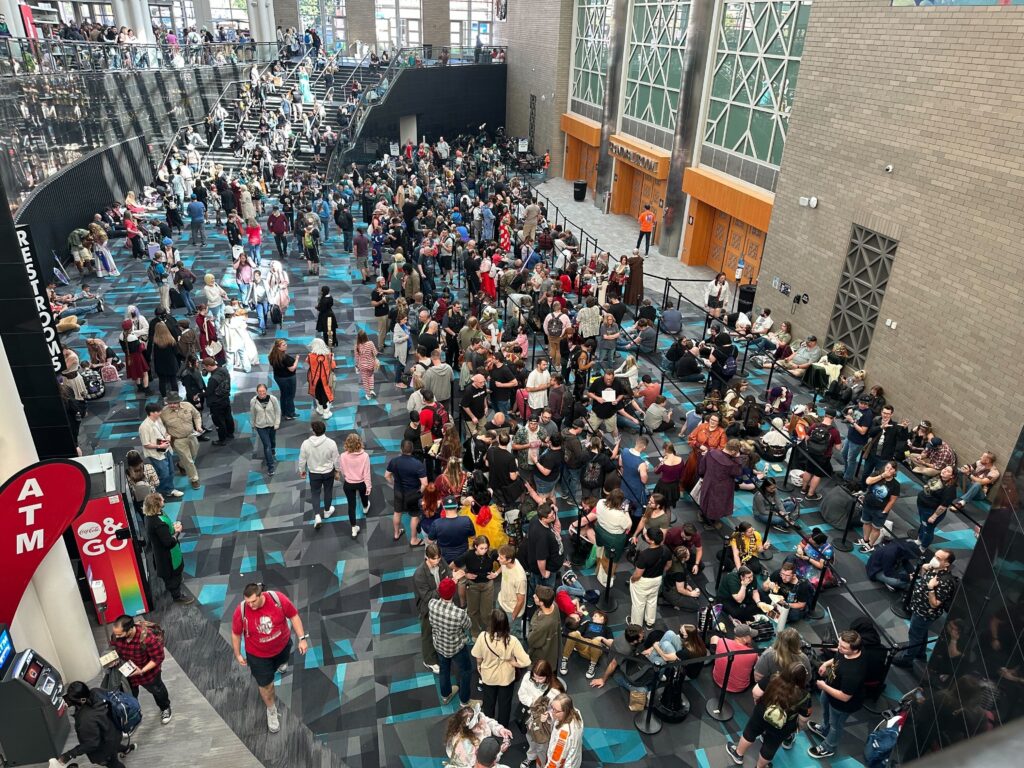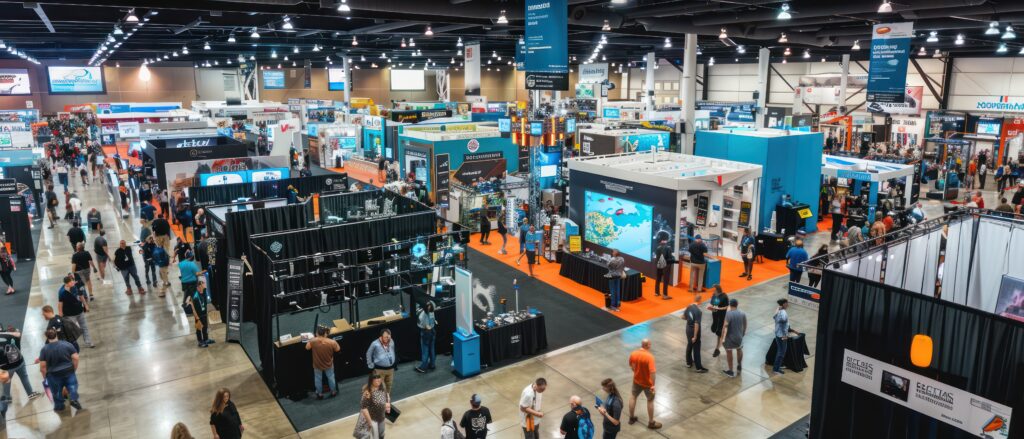How to Not Get Scammed Buying Tickets for High-Demand Events
Search Results
There’s nothing more rewarding than seeing your venue packed with tons of excited fans ready to enjoy an unforgettable experience! However, as your event grows in popularity and its tickets become high in demand, ticket fraud becomes more of a threat to you and your ticket buyers. In this article, we’ll walk you through practical tips to share with your attendees, ensuring they know how to avoid ticket scams, verify tickets, and confidently secure their spot at your event.
How Ticket Scams Happen
Ticket scams are a form of fraud where scammers sell counterfeit, invalid, or duplicate tickets to uninformed attendees. They often target events with tickets that are sold for a premium price and in high demand, such as concerts, sports matches, and large festivals. If an event is sold out, scammers may prey on eager fans willing to pay top dollar to secure their spot. Here are a few of the most common tactics so you know how to spot a ticket scammer:
1. Counterfeit Ticket Sales
Using an official ticket from the venue, the fraudster may try to sell that same ticket to multiple people, allowing the first person to get in but preventing the entry of others. They might also sell someone a ticket to seats or sections that don’t actually exist at the venue. The ticket buyer may even get a physical or digital ticket from a third-party that looks real but doesn’t work when scanned.
2. Invalid Ticket Resale
Unauthorized ticket resale is at risk of being an invalid purchase. For instance, a scammer may sell someone the ticket, but never actually transfer it to them, whether virtually or in person. They might have even stolen a ticket or physical badge with another person’s credentials and tried to resell it. Not to mention, these tickets are often sold for an extreme markup.
3. Fake Advertisements
Scammers may run fake ads, manage misleading social media profiles, or host a duplicate website to lure unsuspecting buyers into purchasing invalid tickets. If someone is unaware, they may access a fraudulent website thinking it’s the official one, then accidentally disclose their credit card information to a bad actor when buying a fake ticket.
How to Avoid Ticket Scams
Knowing these tactics sets the foundation for reliable event ticket fraud prevention. Now, let’s talk about solutions! As the event organizer, here are ways you can help your attendees safely buy their tickets to your experience.
1. Encourage ticket buyers to only purchase from your official website
One of the most effective ways to prevent ticket scams is to direct ticket buyers to your official website. Make sure your event’s official ticketing platform is prominently displayed on all marketing materials, including your social media profiles, flyers, and emails. This ensures buyers know exactly where to purchase legitimate tickets without falling for fraudulent links or phishing scams.
2. Have your resale policies clearly displayed
To ensure everyone is aware, display your resale policies prominently on your website and on your ticketing page. For example, near the top of your event listing, you could have a line of text saying, “Please be aware that we do NOT permit any secondary reselling of tickets.” We highly recommend keeping these policies strict to protect both your event and ticket buyers from potential fraud. You should also state whether you accept physical and/or digital tickets and direct them to your ticket provider’s help center articles about making valid transfers or exchanges.
3. Use a ticketing provider that allows secure ticket transfers
Plans change, and it’s common for attendees to transfer tickets to someone else. To minimize the need to resell through a third-party platform, use a trustworthy ticketing provider — like Leap’s professional event ticketing solution — that makes it easy to securely transfer tickets to someone else directly within the platform.
4. Validate trusted resale platforms if your venue permits resale
If your venue allows ticket resale, identify and communicate which platforms you accept resold tickets from (e.g., SeatGeek, StubHub, or VividSeats). Trustworthy platforms will have buyer guarantees that ensure attendees receive a legitimate ticket or get a full refund. These will also have high-quality user reviews. However, warn attendees about purchasing tickets via unverified methods such as through social media or an online marketplace. If you’re still selling tickets on your website, emphasize that this is the best and safest option for them.
How to Help Attendees Avoid Ticket Fraud
Avoiding fraud starts with educating your ticket buyers. In addition to the tips above, empower your attendees with the following best practices to follow and red flags to watch for. This ensures they can confidently buy their tickets and get into your venue. Without further ado, here are some tips you can share with them:
- Think before you click. Make sure people verify the URL before they click the link in a text, email, or online ad about your event. Or better yet, avoid them all together and go to the website directly. Don’t just click the first link at the top of Google search results either! Verify that link too, because sometimes counterfeit websites can pay for an ad to appear at the top despite not being the official site.
- Encourage attendees to follow your official pages. Direct buyers to your verified social media pages, newsletter, and website. Share the official links across all your platforms, and clearly identify your official ticketing partner to guide them away from fake ads or phishing accounts.
- Only buy tickets from people you trust. Reselling tickets is less risky when ticket buyers stick to people they know, such as mutual friends or colleagues. Whenever possible, if the event is sold out and they can’t purchase from the official website, buying a ticket from someone a ticket buyer has mutual connections with is the next safest option.
- Step back and ask questions before buying. It’s easy to rush into a purchase out of excitement, but remind ticket buyers to do their due diligence before committing. If the seller is legitimate, they’ll have no issue taking time to verify and answer questions.
- Avoid offers that seem “too good to be true”. Deals offering premium seats at a fraction of the cost or tickets to sold-out shows should raise immediate red flags (especially since this is classic concert ticket fraud). Encourage attendees to approach such offers with healthy skepticism or safer still, ignore them altogether.
- Use secure payment methods. Advise ticket buyers it’s best to purchase tickets through secure platforms like Stripe or Leap’s merchant services solution. Use extreme caution of using Venmo, Cash App, or PayPal Goods and Services to buy tickets, and never wire money or use prepaid cards for them.
How to Confirm Tickets are Real
If your venue permits resale and attendees are going to purchase from a ticket reseller, encourage your attendees to verify the legitimacy of tickets before finalizing their purchase. Here’s how:
1. Verify every element of the ticket
Ticket buyers should closely inspect essential details such as seat and row numbers, venue location, and the event’s time and date. These small details can get overlooked in counterfeit tickets. If anything looks off, do not purchase the ticket(s).
2. Request multiple screenshots
People buying resold tickets should request images of both the ticket and the confirmation email. Typos in email addresses (e.g., “help-ticketmaster.com” instead of “ticketmaster.com”) or inconsistent branding can be subtle red flags too. For added caution, urge them to do a reverse image search of the screenshots to make sure the photos aren’t copied from somewhere else.
3. Ask the right questions to the reseller
By asking the seller clarifying questions, buyers can gauge whether they’re truly legitimate. Questions like “Why are you selling your ticket?”, “When did you buy the tickets?”, and “What presale code did you use?” can help validate the seller. If the answers seem vague, their date of purchase doesn’t align with the event’s onsale, or they resist answering all together, it’s likely a scam.
4. Conduct a background check on the reseller
For individuals buying from someone they don’t know personally, emphasize that they should use extreme caution and do extra research. Analyzing the seller’s social media presence is often a good indicator — accounts with zero or very few posts, no activity in 5+ years, and generic profile pictures might indicate that the person is using a fake or hacked account. Sellers offering tickets for multiple unrelated events are another major red flag. Urge attendees to verify the seller through their own trusted networks of friends, family, and colleagues whenever possible.
Bought a Fake Ticket? Here’s What To Do
If an attendee discovers that their ticket isn’t real, here are the actions you should advise they take!
- Reach out to your bank or credit card company right away to report the fraud. They may be able to dispute or even reverse the charge.
- If they purchased invalid tickets from a valid third-party reseller, contact the company to get a refund on their tickets. This is why purchasing from resellers with a buyer guarantee is so important!
- File a police report, especially if you had any in-person dealings with the scammer, and notify the Federal Trade Commission (FTC) to document the incident.
- To protect others, share your experience on the Better Business Bureau Scam Tracker too.
Incredible Events Start with a Safe Ticket Purchase
As event organizer, your goal is to create an unforgettable experience for your attendees, and that starts with ensuring a smooth ticket purchase process. By educating your audience on how not to get scammed buying tickets, you’re empowering them to buy tickets with confidence. Most importantly, stay vigilant and always use a secure event ticketing platform like Leap! Together, we can reduce ticket fraud and ensure all your fans can enjoy the event!




